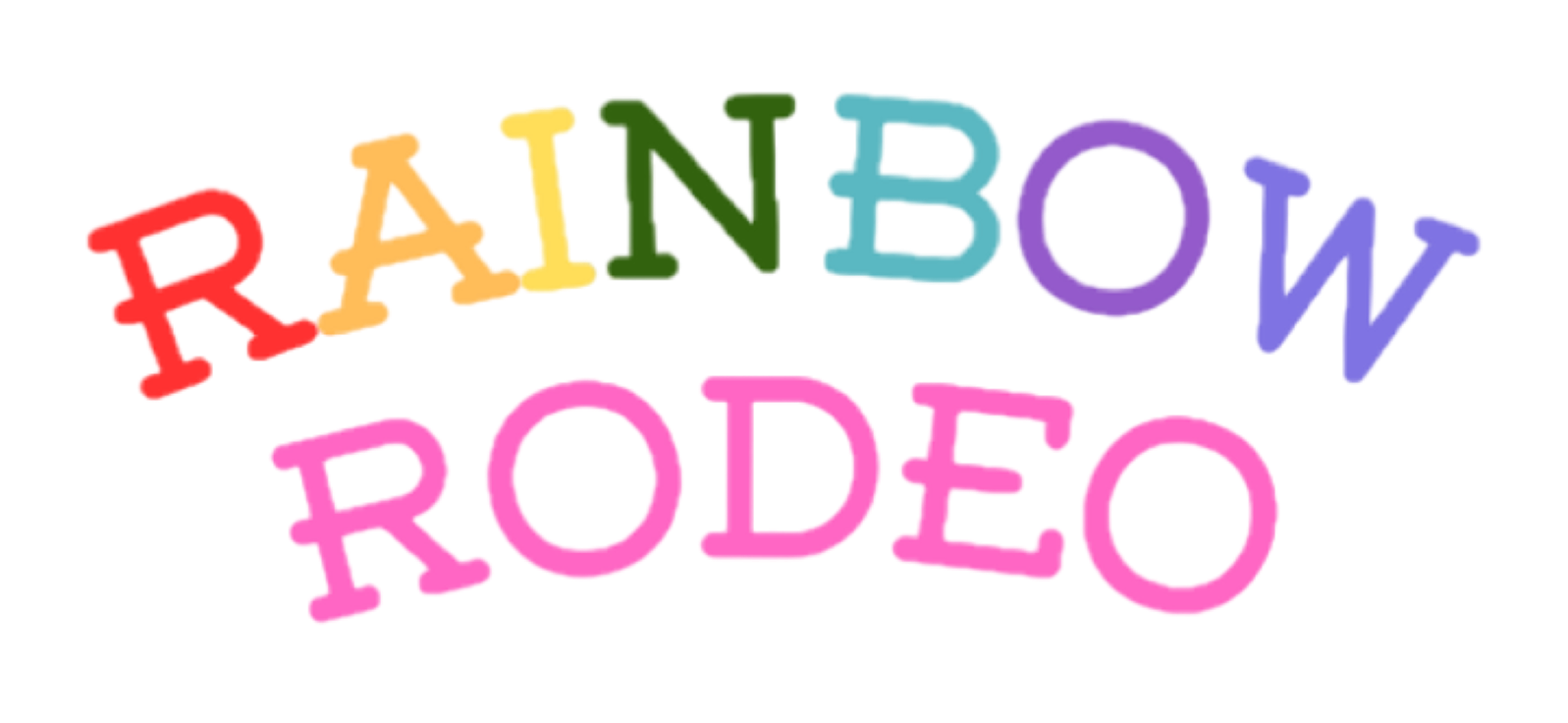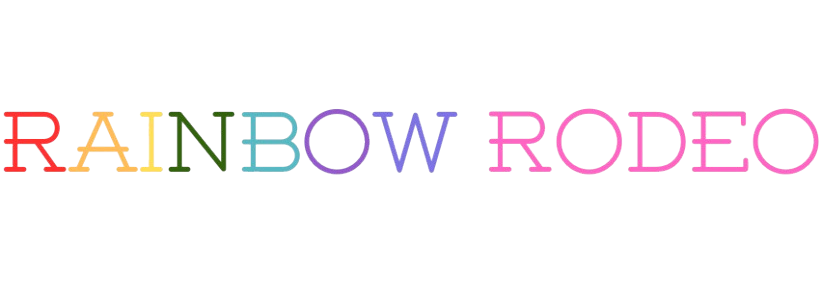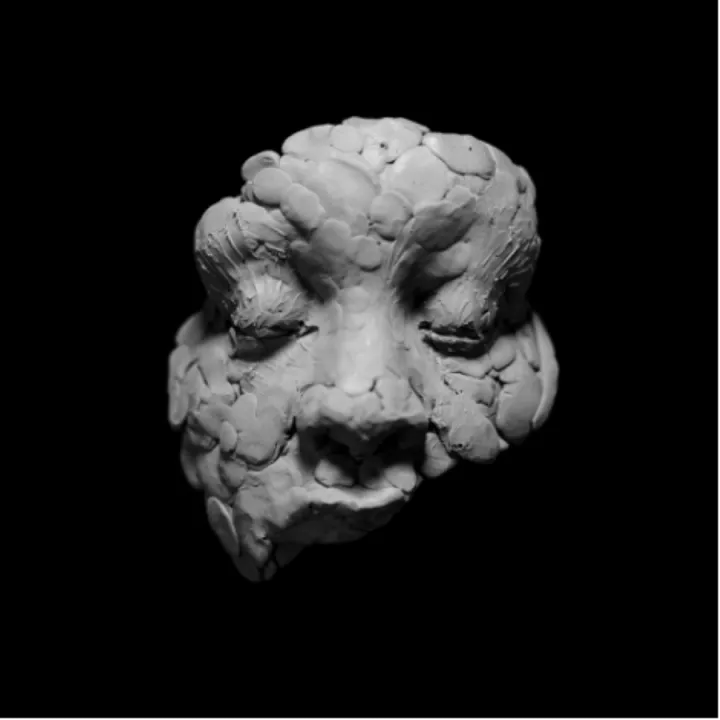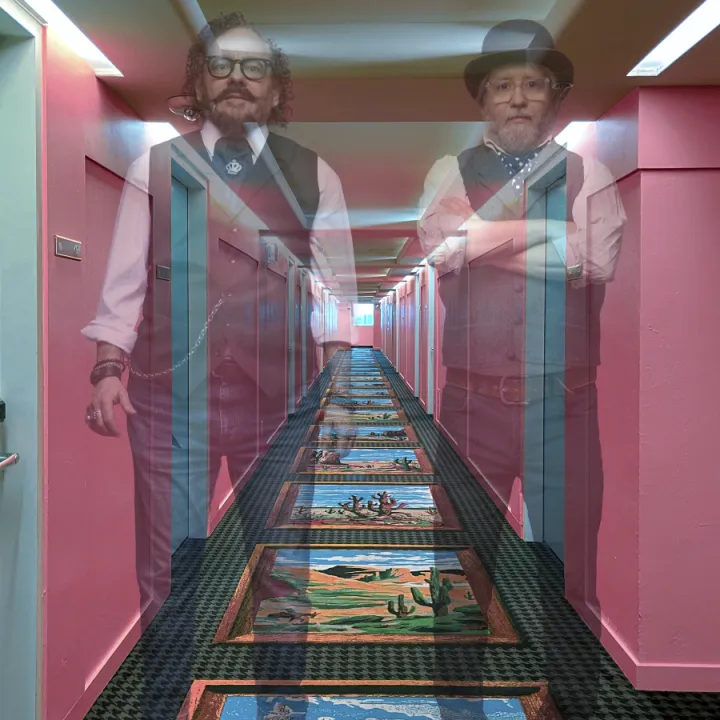INTERVIEW: Lila Blue's Songs Burst Forth From Their Dreams

Lila Blue’s strangely dreamy writing makes a lot of sense when you learn that some of them are written in their sleep — literally. Raised on an artists’ commune in upstate New York, Blue has been writing songs and expressing themselves since they were a child. Their upcoming album, Sweet Pea (out 11/10), finds Blue processing their coming out as non-binary and healing from childhood sexual assault.
In our interview, which was conducted in September before Americanafest, Blue and I discuss their writing process, how writing helps them process, and some advice for anyone who is, well, in process.
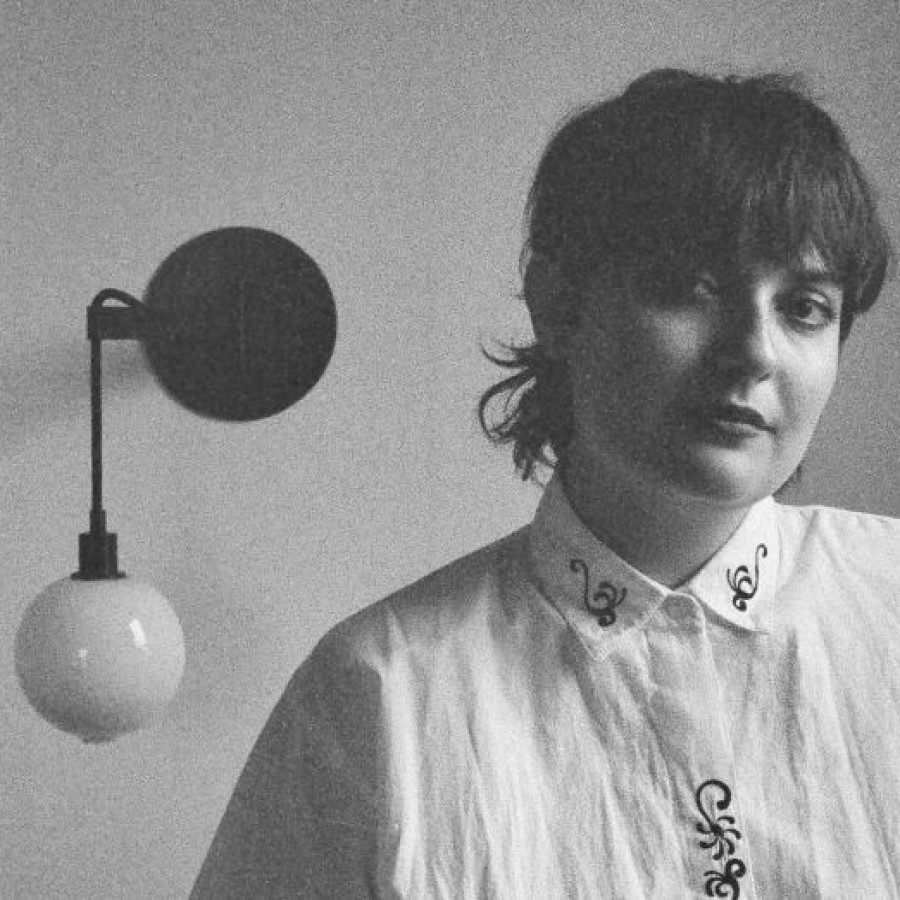
Rachel: By the time this is published, you have already performed at Americana Fest and the Americana Proud showcase which is the first official LGBTQ showcase that Americana Fest is doing, but I’ve noticed they’re not mentioning that it’s the first.
But how are you feeling about performing at the festival and also the showcase?
Lila Blue: I feel great about it. I feel like when I started making this record, I made it down in Nashville and like knew very clearly that for this record out of I’ve done a few other ones, but I knew that this one I really wanted to be rooted in foundations of country folk music and Americana music, and I have a lot of reverence and love for both of those genres.
So, when I was down in Nashville last year because I’d gone down to visit Jordan Hamlin, who produced the record, I knew that this festival was happening at the same time, and I remember being like, “Oh, I really like that! I really hope that I get to play there one day.”
I’m really just joyful to be a part of it. And then also to be in an amazing cohort. I want to end up being in the first core cohort of a showcase that’s queer people. That’s baller. I’m super honored.
Rachel: It’s an amazing album. My wife and I were like, there’s no way they’re 23. (No offense.) You’ve been making music for a really long time. You began doing something called sleep writing since you were a child. Is that still part of your process?
Lila: A little less these days. There are songs on the record that I wrote in my sleep, like “High on a Hill.” I sometimes joke that I’m like a recovering child performer. That sleep writing component of things when it came into my life, I had started writing songs before that, but more so based off of other people’s stories that I was drawn to. I loved Patti Smith’s Just Kids. The first song I ever wrote was based off of that book ‘cause I loved it.
But then around like 11 or 12, I started having these like really intense dreams and I would wake up and I had been like writing things out —
Rachel: Physically writing in your sleep?
Lila: Yeah. I was a little spooked out about it. I was raised in an artist collective. That’s where it started happening. My mother is like an experimental theater performer person and brought me up to this art collective in upstate New York, where we would put up Chekhov plays and do wild things.
I remember going to someone there and being really scared about it. There were so many emotions in my tiny little body. And I think that they found an easeful way to come out when I wasn’t trying to suppress them, which was taking all of the magical aspects out of it for a second. So it happens a lot less now cause I let myself feel things.
Rachel: Do you find your sleep writing has as you’ve gotten older and moved through some key traumatic experiences, which you’ve written about publicly?
Lila: It feels much more drawn to the mythic things that I love. Like definitely the things that have been present in most of the songs that have come through in that way is still there’s a theme of wanting to honor or tend to what has been tucked away and shut up and silenced.
When I first “High on a Hill,” I thought it was a lovely eight-verse folk song. But when I would share it with people, they were like, “Whoa, this is really intense. Are you okay?”
I was looking through the lyrics one day and I was like, “Oh, I think this is about the ways in which the world or individuals can wound us.” Even if people don’t necessarily know why. Like that inner craving for wanting to be tended to even if you’re not around to tell your own story.
Rachel: When I first listened to “Changeling,” it felt a bit menacing to me. But it’s also in part about your coming out process, so now I’m hearing triumph. Does this come from a moment where you were wrestling with yourself?
Lila: No… When Jordan and I recorded the record, I was moving in a really different body and presentation than I am now. I was kind of rocking that high femme journey being like, “this is what people want and I’m going to give it to them.”
And it was just navigating a lot of internal and external pressures that I was placing and others had placed over time on my body to be something that it just wasn’t. When I wrote “Changeling,” I hadn’t stepped into some of the aspects of healing that I am now in. It’s almost like I tried to write them into being first.
I’d been reading a lot of work that was talking about the concept of multiple selves living in one body, the sensation of it because of the actions we’ve done throughout our lives. I’ve been reading a play called Three Sisters where there was a character who had caused so much harm that he felt the harm was living in his body alongside him. At that time I was writing a score for that piece and I was thinking about that concept a lot.
And then I was also reading a book called Freshwater by Akwaeke Emezi, that is written from the perspective of Ogbanje, which are these multiple spirits that are not necessarily benevolent occupying a singular physical body.
So I was just sitting with that theme a lot. And I think looking back on it, similar to what I was saying about when I’m like dreaming and I’m sleep writing, I was feeling all of these phrases.
Looking back on them, there’s so much a feeling of confinement and then that narrative voice breaking through and being like, “we will work until this body drops. It’s time to wake up. It’s time to wake up into your life.” And it’s not always going to be a soothing truth.
Rachel: I know it’s still kind of recent, but do you have anything that you’d like other people who are going through it right now to to know think about?
Lila: I’ve come out a lot of times as many things. And I think even in the past three years to have been easing out more outwardly, coming out around gender and things of that sort… I wish I had given myself the permission to articulate so I could reflect with it. To take all the time you need and that there is no wrong answer. And it’s okay.
Sweet Pea will be out on 11/10. You can pre-order or pre-save it here.
